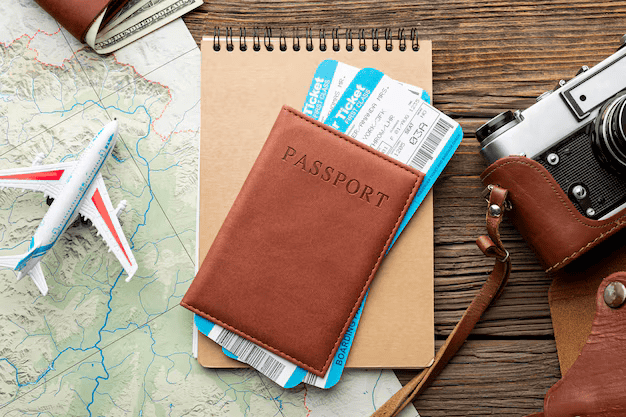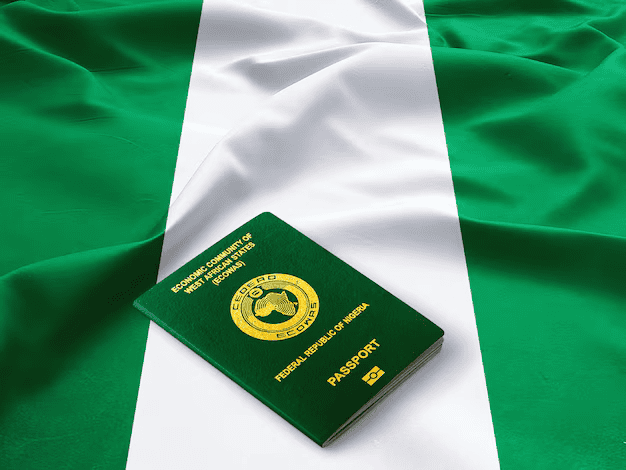
Travel Documents 101: What You Really Need Before Any Trip
If you’ve ever had to scramble last-minute at the airport or missed a trip entirely because of an incomplete document, then you already know how stressful international travel can be when paperwork isn’t sorted. The truth is, it’s not just about booking flights and packing your bags. Having the right travel documents is just as important, if not more.
Whether you’re planning a holiday to Cape Verde, a business trip to the UK, or a honeymoon in the Maldives, there are some travel documents you must have. This guide breaks it down for you, step by step, so you know exactly what to prepare before leaving Nigeria.
Here are the key travel documents you need before any international trip:
1. International Passport
This is your number one ticket to traveling abroad. Without it, you’re not going anywhere. Make sure your passport is valid for at least six months from your travel date. Some countries won’t even let you board if the expiry date is too close.
If your passport is damaged, almost filled up, or expired, apply for a new one in advance. Passport processing can take longer than expected, especially during peak periods.

2. Visa (if required)
Your visa is proof that you’ve been granted permission to enter a country. Depending on your destination, the process might be straightforward or require a bit of planning. Some countries allow Nigerians to get visas on arrival, while others require that you apply weeks or even months ahead.
Always check visa requirements early. For example, the Schengen visa for Europe, the UK visa, or the US visa all have different procedures and waiting times. If your trip involves multiple countries, confirm if one visa can cover all, or if you need to apply for each one separately.
3. Yellow Fever Card
This one catches many Nigerians off guard. Several countries, especially in Africa and South America, require proof of yellow fever vaccination before they let you in.
You can get vaccinated at a port health office and receive your yellow card, which is valid for life. Don’t forget to travel with the original card, not a photocopy.
4. Travel Insurance
This is not just for when you fall sick abroad. Travel insurance also covers things like missed flights, stolen luggage, or cancelled hotel bookings. Many embassies now ask for proof of travel insurance before issuing a visa, especially in Europe.
It’s not too expensive and could save you a lot in emergencies. Some plans even offer 24-hour support services in case you run into trouble abroad.
5. Flight Ticket Confirmation
Booking your flight is one thing, but keeping a copy of your e-ticket or flight confirmation email is equally important. Immigration officers or airline staff may ask to see it, especially during check-in or boarding.
Make sure the details on your ticket match those on your passport. If your name is spelled wrongly, you may not be allowed to fly.
6. Hotel or Accommodation Booking
This shows where you’ll be staying during your trip. Some countries require that you provide this information before they issue your visa. Others ask for it when you arrive.
If you’re staying with a friend or family member, a letter of invitation or proof of residence may be required instead of a hotel booking. Just ensure it’s all clearly stated and verifiable.
7. Proof of Funds or Bank Statement
Certain visa applications require proof that you can take care of yourself financially during your stay. You may be asked to submit bank statements for the past three to six months.
Some embassies also want to see evidence of steady income or sponsorship, especially if you’re a student or traveling for family visits.
8. Identity or Supporting Documents
These vary based on your reason for travel. If you’re going for a business trip, carry your company ID or an invitation letter. For students, your admission letter and school ID may be needed. For conferences or training, make sure your event registration or confirmation letter is printed out and ready.
9. COVID-19 Requirements (where applicable)
Some countries still require proof of vaccination or a recent negative test result. Check the latest travel advisories for your destination. Requirements change often and some countries are more relaxed than others.
Always have digital and printed copies of any COVID-related documents, especially if you’ll be transiting through multiple airports.
10. Photocopies and Backups
This might seem basic, but always make photocopies or scans of your key documents. Keep a digital copy saved in your email or cloud storage. That way, if your bag gets lost or stolen, you’ll have a backup to help recover or prove your identity quickly.

Final Tip: Stay Organized
Use a travel wallet or folder to store all your documents. Put your passport, boarding pass, yellow card, insurance, and booking confirmations in one place. Before your travel date, do a final check to make sure everything is complete.
At Akorite Travels, we don’t just help you book flights and tours. We walk with you through the entire travel process, including visa assistance, documentation, and even Yellow Card guidance.
Thinking of traveling soon and not sure where to start?
Call Chioma or Dami on 09066442339, 08146555663, or 02013303388, or email us at inquiry@akoritetravels.com.
We’ll help you sort your travel documents stress-free.







